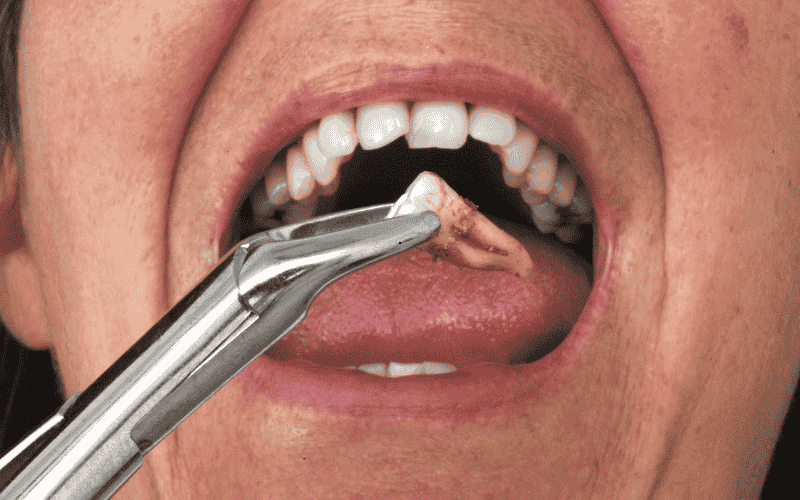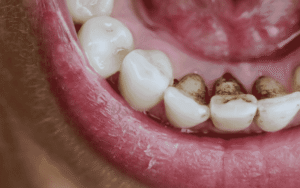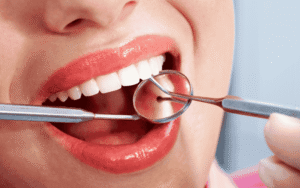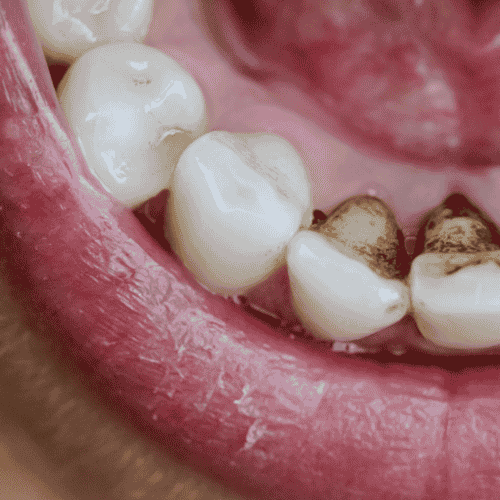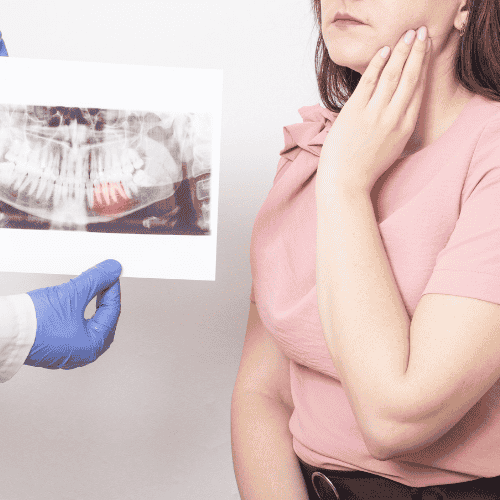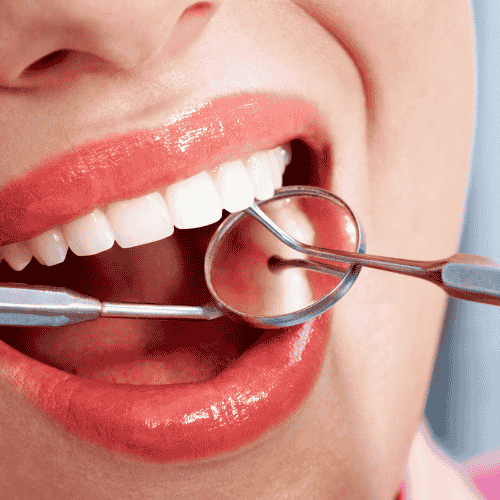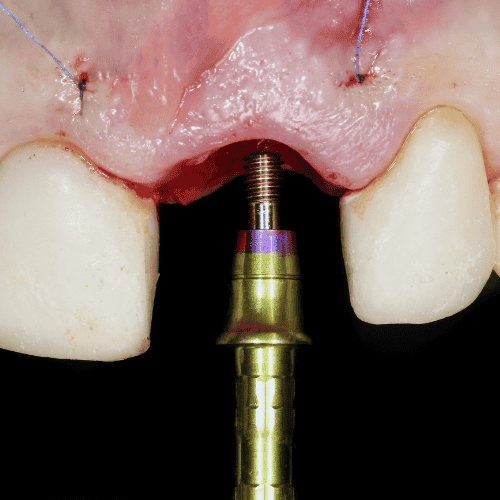If you have back-of-the-mouth pain, swelling, or discomfort, your wisdom teeth may be communicating. When third molars appear in your late teens or early 20s, they might do more damage than benefit. Impacted or diseased wisdom teeth may cause major dental health complications if addressed. Early detection may prevent more extensive therapy. Let’s examine the signs that wisdom teeth should be removed and understand wisdom teeth impacted meaning.
What Are Impacted Wisdom Teeth and Why Do They Occur?
Third molars that fail to come through the gums are called impacted wisdom teeth. Wisdom teeth, the final molars, emerge between 17 and 25, a process known as wisdom tooth eruption. Many times, these teeth get locked beneath the gums or jawbone and cannot emerge. Impaction may cause discomfort, infection, and tooth damage.
Impaction happens when the jaw cannot accept wisdom teeth. Some teeth develop at an angle that makes it hard to break through the gum line, such as a horizontal impacted wisdom tooth, vertical impacted wisdom tooth, or sideways wisdom tooth.
Due to space limits and inappropriate angle, wisdom teeth may become partially or fully impacted, causing swelling, discomfort, and more serious dental concerns. Preventing dental damage needs early identification and treatment.
Understanding the origins and impacted wisdom tooth symptoms might help you avoid dental complications.
Types of Wisdom Tooth Impaction Explained
Wisdom teeth impaction, when third molars fail to completely erupt from the gums, is frequent. Each sort of impaction affects dental health differently. Understanding these characteristics may help you see problems early and handle them.
Fully Impacted Wisdom Teeth
Hidden behind the gums and jawbone, fully impacted wisdom teeth are undetectable. These teeth lack space to burst through the gum line and stay stuck. This may cause discomfort, infection, and tooth damage if neglected.
Partially Impacted Wisdom Teeth
Part of a partially erupted impacted wisdom tooth emerges through the gums. However, surrounding teeth typically hinder these teeth from completely developing. They may produce pain and swelling, but they may also cause infection or tooth damage.
Non-Impacted Wisdom Teeth
Unimpacted wisdom teeth are fully erupted wisdom teeth, visible above the gum line. These teeth may seem healthy, yet they might cause overcrowding or misalignment. These teeth must be monitored for problems and compared as impacted vs non impacted wisdom teeth.
Soft Tissue Impaction vs. Hard Tissue Impaction
Based on the clot location, your dentist may call impaction “soft tissue impaction” or “hard tissue impaction”.
- Soft Tissue Impaction: When a tooth emerges from the jawbone but is still covered by the gums, causing pain or infection.
- Hard Tissue Impaction: Entire tooth covered by gums and jawbone, necessitating surgery to remove.
Knowing the various forms of wisdom teeth impaction helps you spot symptoms and get expert help before they worsen. If you feel your wisdom teeth are impacted, see a dentist for assessment and treatment.
How Common Are Impacted Wisdom Teeth?
A significant portion of the population has impactions in their wisdom teeth. The American Academy of Oral and Maxillofacial Surgeons estimates that 90% of persons will have an impacted wisdom tooth. Impacted wisdom teeth are common and if you don’t treat them they will may cause pain, infections, and other dental issues. Regular dental exams are necessary.
Even if you don’t have any impacted wisdom teeth symptoms, you should know what they are and obtain expert care. Knowing how frequently this occurs may prevent jaw space or angle issues and maintain your teeth healthy.
Common Symptoms of Problematic or Impacted Wisdom Teeth
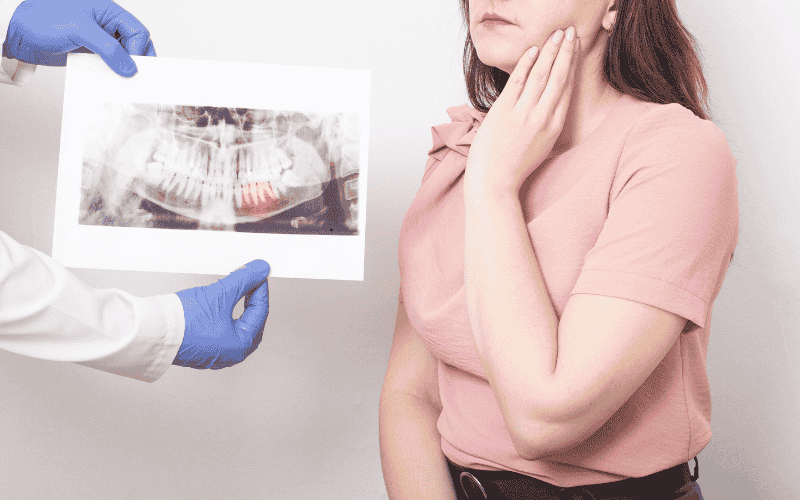
If your wisdom teeth aren’t working right, they could hurt your teeth in ways that are bad for their health. Some people don’t have any problems, but others do and they get worse over time. Here are some of the most common signs that your wisdom teeth are causing problems and may need professional help:
- Swelling or Pain: Pain or swelling in the jaw or back of the mouth is a common sign. It could hurt more when you eat, talk, or rest.
- Red, Swollen, or Bleeding Gums: Wisdom teeth that are impacted can make gums swell and bleed. This usually happens when the tooth is only partly out or can’t break through the gum line.
- Bad Breath or Bad Taste: If food and germs get stuck behind an impacted wisdom tooth, they can make your breath smell bad (halitosis) and taste bad.
- Hard to Open Your Mouth: Impacted wisdom teeth can put pressure on the jaw, making it hard to open your mouth.
- Damage to Nearby Teeth: Wisdom teeth that push on nearby teeth can cause them to become misaligned or hurt. If you don’t treat it, this could lead to more dental problems.
- Bad Taste in Your Mouth: If bacteria get stuck in your gums, they can cause gum disease or an infection, which can leave a bad taste. This happens a lot with wisdom teeth that are stuck, especially ones that haven’t come in yet.
Top Signs It’s Time to Remove Your Wisdom Teeth
Some signs indicate that impacted wisdom teeth removal may be essential for dental health. Because of space constraints, wisdom teeth that fail to completely develop may cause discomfort, swelling, and tooth misalignment. Jaw pain, problems opening your mouth, and bad breath may indicate pericoronitis, a serious bacterial infection.
If your wisdom teeth grown in less space and is impacting its neighbouring teeth, in thsi case extraction is a must to prevent dental issues. If you have any of these symptoms, see your dentist to prevent problems and protect your dental health. If you wonder how to know if wisdom tooth is impacted or how to tell if wisdom tooth is impacted, consult a dental specialist.
Specific Warning Signs You Shouldn’t Ignore
Knowing the signs that your wisdom teeth need to be removed is crucial. Ignoring these signs might cause more significant issues. Let’s see them:
- Jaw Pain, Soreness, and Stiffness: If your jaw hurts, is sore, or is stiff, it’s a sign that your wisdom teeth need to be treated. Immature wisdom teeth can swell the gum tissue and can make eating food painful.
- Gum Inflammation & Swelling Near Your Wisdom Teeth: If your gums are red or swollen around your wisdom teeth, it could mean you have an infection or are in pain. This usually happens when the tooth is coming out and the gums get inflamed. Go to the dentist to get your teeth checked and see if they need to be pulled.
- Hard to Open Mouth: Infected or blocked wisdom teeth may limit mouth opening. If this stiffness and discomfort makes chewing and talking difficult, you may require wisdom teeth removed.
- Foul Breath (Halitosis): Food and germs trapped behind impacted wisdom teeth may cause persistent foul breath despite brushing and flossing. This may suggest that the tooth is deteriorating or diseased, requiring removal to restore oral health.
How Impacted Wisdom Teeth Affect Your Oral and Overall Health
Wisdom teeth impacting may cause pain, swelling, and discomfort. Due to their difficulty cleaning, they’re prone to tooth decay and gum disease. These conditions might cause infections, abscesses, or tooth damage to nearby teeth. Impacted wisdom teeth might alter bite alignment if untreated. Preventing major dental and general health issues requires early action.
If you’re wondering do impacted wisdom teeth need to be removed, the answer is yes if they cause recurring pain, infection, or jaw discomfort.
Diagnosis: How Dentists Identify Impacted or Problematic Wisdom Teeth
A comprehensive examination and analysis of symptoms can help your dentist decide whether your wisdom teeth are impacted. They may use dental X-rays to assess wisdom teeth position, impact, and jawbone or tooth damage. These diagnostic tools help your dentist diagnose and provide treatment to prevent issues. This process helps determine how to know if your wisdom teeth are impacted and what do impacted wisdom teeth look like.
Wisdom Teeth Treatment and Extraction
If your impacted wisdom teeth cause discomfort, infection, or other dental difficulties, removal is usually advised. Your dentist or oral surgeon may recommend oral surgery to avoid future issues. Impacted wisdom teeth are harder to remove, but your dentist will prescribe pain treatment to make the procedure easier.
Are Impacted Teeth More Painful to Remove?
Due to their location, impacted wisdom teeth are harder to remove, although the process is not always more painful. Oral surgeons utilise local anaesthesia or sedation to numb the region and offer pain control after surgery.
Risks and Complications of Wisdom Teeth Removal
Like any surgery, wisdom teeth extraction has risks and problems, including:
- Dry sockets: You’ll see the bone once the blood clot breaks off too soon from the tooth socket. However, you should avoid drinking through straw after procedure.
- Infection: Trapped bacteria, food, or debris might cause infection at the extraction site. Your dentist may prescribe medicines for infection.
- Damage to Adjacent Structures: The procedure may cause harm to nearby nerves, jawbone, sinuses, or teeth. Advanced surgical procedures reduce these dangers, yet they may occur. Damage may need further steps.
How Long Does It Take to Recover from Wisdom Teeth Removal?
Most people who have their wisdom teeth taken out are better in one to two weeks. In a few days, you should be able to go back to work, school, and your normal life. Pain medicine and your dentist’s aftercare instructions may help with swelling and pain during recuperation.
Most people heal well, but it’s important to follow the guidelines after surgery to avoid difficulties. It may take weeks for the gums to recover, although most people feel well right after. For optimal healing, choose soft food to eat after wisdom teeth removal and avoid hard foods.
When to See a Dentist About Wisdom Teeth Pain or Swelling
If you experience long-term pain, swelling, or difficulties opening your mouth, talk to your dentist about your wisdom teeth. These symptoms might mean that there is an infection, an impaction, or gum inflammation. Teeth Implants Turkey is an expert in diagnosing and treating wisdom teeth. Contact us at +44 7522 034703 or contact@teethimplantsturkey.net for a consultation to protect your dental health. We provide expert Turkey dental treatment to address impacted and problematic wisdom teeth safely.
FAQs
What are the first signs of wisdom teeth problems?
Wisdom teeth issues begin with back-of-mouth pain, swelling, and discomfort, often around the gums or jaw. You may also have poor breath or trouble opening your mouth.
How do I know if my wisdom teeth are impacted?
Pain, swelling, and discomfort typically accompany wisdom tooth impactions. Your dentist will use X-rays to evaluate whether your wisdom teeth are impacted and require removal.
When should I get my wisdom teeth removed?
If you have chronic discomfort, swelling, infection, or misalignment, consider wisdom tooth removal. A dentist may diagnose and offer therapy.
Is wisdom teeth removal painful?
Wisdom tooth removal may be painful, but your dentist will use local anaesthesia or sedation to minimise suffering. Painkillers usually treat post-operative pain.
How long does it take to recover after wisdom teeth extraction?
Most individuals recover after wisdom teeth extraction in 1-2 weeks. You may require a few days to recuperate, but you may usually resume regular activities.
What are the risks associated with wisdom teeth removal?
Wisdom tooth removal may cause dry sockets, infection, and tooth or structural damage. Proper post-surgery care and dental advice may reduce these risks.
How can I speed up my recovery after wisdom teeth removal?
Carefully follow your dentist’s aftercare recommendations to speed up healing. This includes avoiding hard or chewy meals, using cold packs for swelling, and taking painkillers. To speed recovery, avoid smoking and clean the extraction site.



